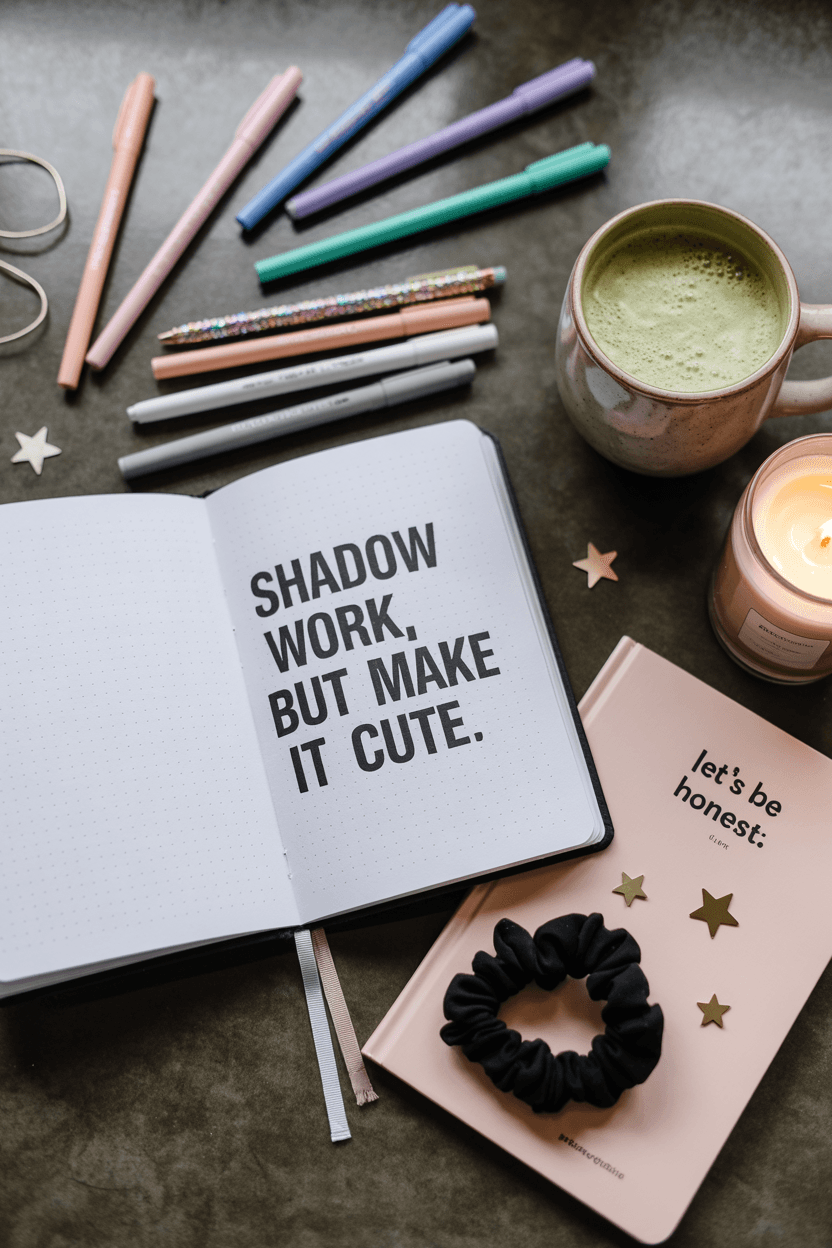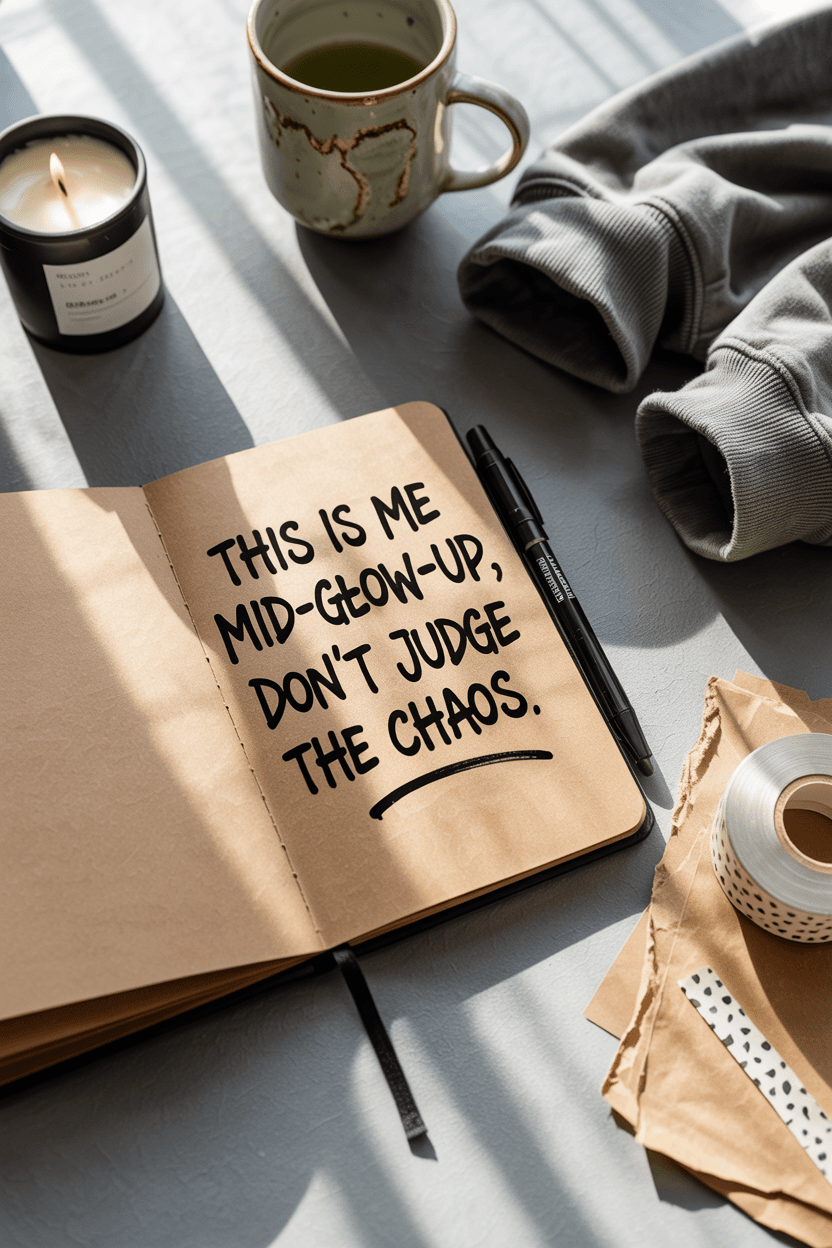You know that feeling when you wake up and your brain’s already sprinting—thinking about to-dos, worries, or that weird dream you had? Yeah, same. But there’s one habit that can help clear the mental noise before your day even starts: morning pages journaling.
Made famous by Julia Cameron in The Artist’s Way, Morning Pages are three pages of handwritten, unfiltered, totally raw stream-of-consciousness writing. It’s not supposed to be deep or poetic. It’s just your brain, untangled on paper.

Why Morning Pages Work (And Why Science Backs It)
This isn’t just a creative trend—it’s a proven mental health tool. A study in Advances in Psychiatric Treatment found that expressive writing reduces stress, improves problem-solving, and helps process emotions. Plus, writing first thing in the morning engages your prefrontal cortex aka your decision-making brain so you start your day grounded, not scattered.
For more on the science, check out journaling for mental health.
What Happens When You Write Morning Pages
- 🧠 Clears Your Mind: You get all the clutter out so your brain can focus on what actually matters.
- 🎨 Sparks Creativity: Writing without judgment unlocks ideas and inspiration that were buried under anxiety.
- 🌿 Lowers Stress: Putting worries on the page helps reduce their emotional weight.
- 🪞Builds Self-Awareness: You start noticing patterns, fears, and thoughts you didn’t realize you had.
- 🚀 Boosts Productivity: With less mental fog, you move through your day with more focus and clarity.
How to Start Morning Pages Journaling (Without Overthinking It)
1. Carve Out the Time
Set aside 15–30 minutes first thing in the morning. Don’t scroll. Don’t check emails. Just write.
2. Use Pen and Paper
Typing is fine, but handwriting slows you down in the best way. It helps you connect more deeply with your thoughts.
3. Write Three Full Pages
Even if it’s repetitive. Even if it’s “I don’t know what to write.” Just keep going. You’re training your brain to let go.
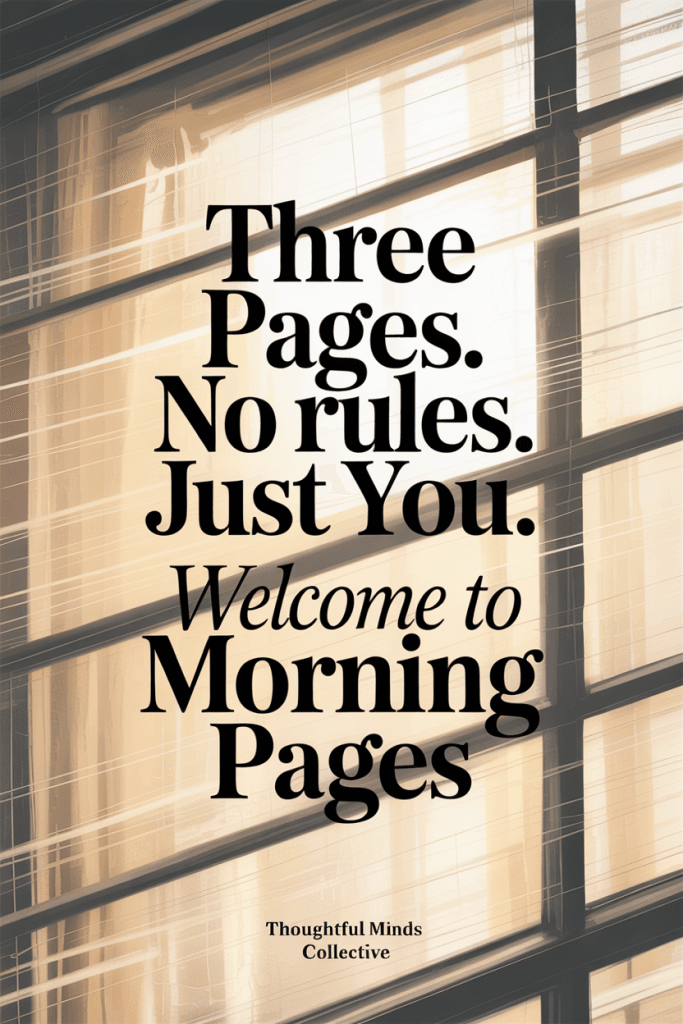
4. Don’t Edit—At All
This isn’t for your blog or your therapist. No grammar police allowed. You’re just letting it out.
5. Follow Your Thoughts
Worried about something? Write it out. Dreamt about zombies? Put it on the page. Morning Pages are about release, not analysis.
If you’re totally new to journaling, this guide on how to start journaling when you don’t know what to write might help.
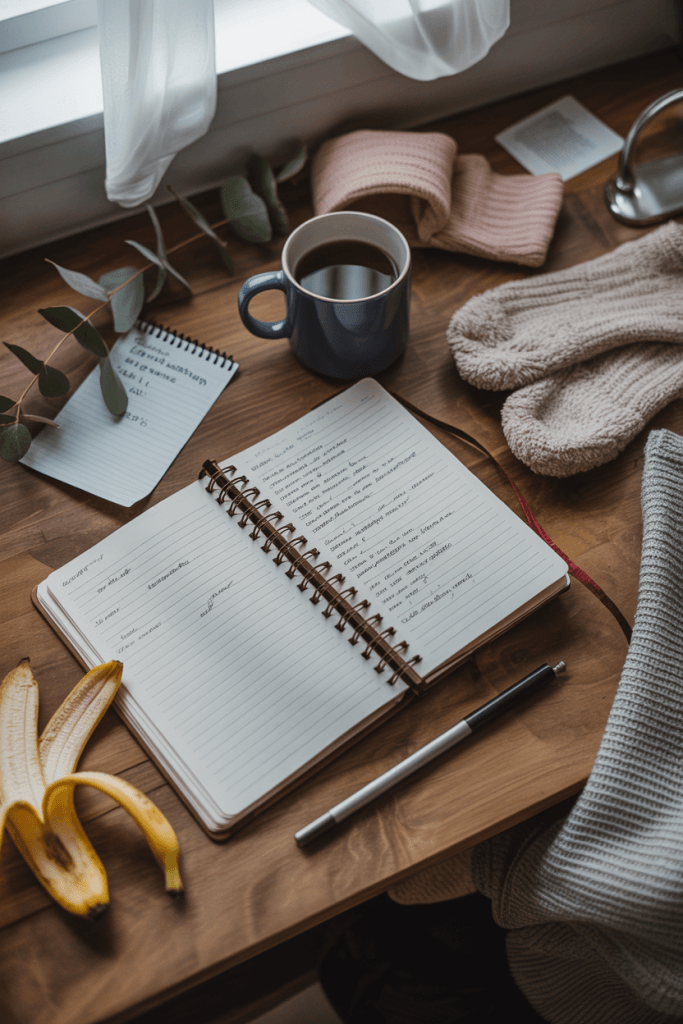
Tips to Make It a Real Habit
- Keep your journal right next to your bed
- Use a timer if you’re in a rush—15 minutes is better than nothing
- Pair it with a cozy morning drink or playlist
- Don’t aim for “deep”—just aim to show up
Want more technique ideas? Try these journaling techniques for new writers to mix things up.
Why This One Tiny Habit Can Be a Game Changer
Morning Pages might feel messy, even pointless at first. But after a week or two, you’ll notice your brain feels lighter. Your creativity? It’ll start showing up without being forced. And your mornings? Way less chaotic.
This isn’t about perfection. It’s about creating space—for your thoughts, your feelings, and your potential.
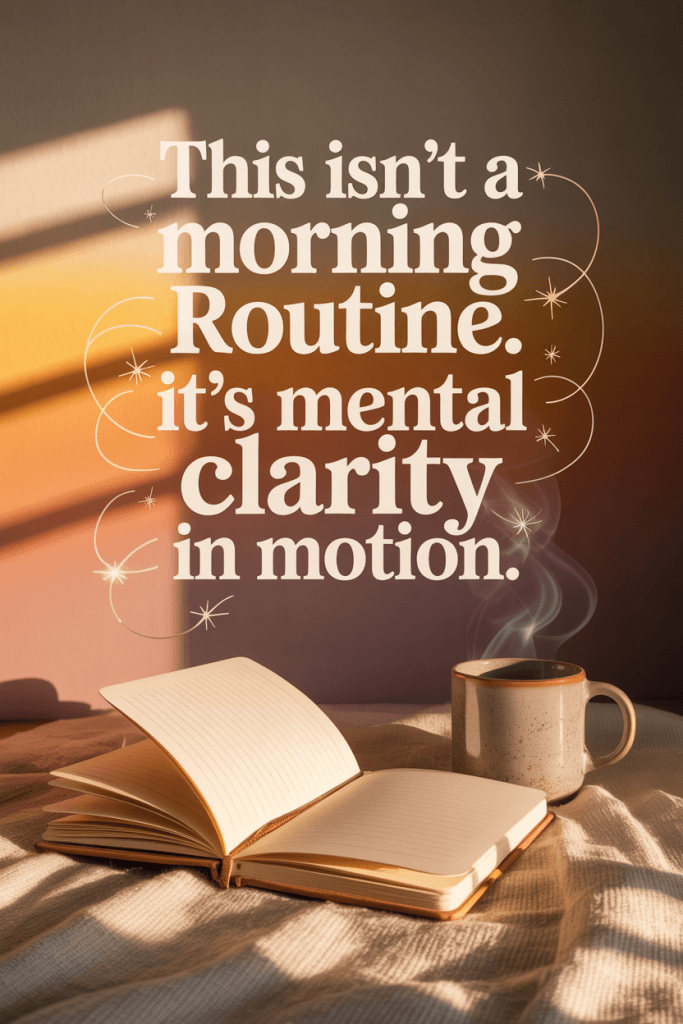
Join the Morning Pages Movement
Thousands of creatives, founders, and everyday humans swear by this practice. You don’t need to be an artist to do it. You just need a few minutes and a willingness to be honest on the page.
So what are you waiting for?
Grab a notebook. Write it out. And see what happens when you start your day with you.


